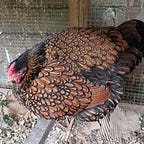the shape of water
Two short pieces that I wrote more than a week apart, but which encapsulate my concerns right now as I watch Christian groups splinter in politics, and see permaculturists do very much the same.
—
There’s a strong theme of “Australians care about Australians (only)” in our politics, right now. Honour, decency, generosity, thoughtfulness, can all be discarded with the glib phraseology of “For Australia and Australians”. It’s an alarming mentality of self-interest, particularly coming from a self-admitted Christian PM and the party that conservative Australian Christianity has (at least at a hierarchical leadership level) hitched its wagon to.
Water takes on the shape of that which it inhabits. If we inhabit a space where political expedience says that our yes need not mean yes, (and a woman’s no need not mean no), where it’s more important that our rights and freedoms are respected than that the hopeless are granted opportunity, the landless are welcomed in, and the oddballs needn’t hide what they are, then after a while, the hopeless, landless, and oddballs are just deadweight. Things to be carved away like rotting wood, kicked off like deadweight, thrust out into the darkness, lest it drag our society down it its pursuit of bigger and better outcomes.
After a while, our actions are no longer political expedience for the sake of power, but who we are.
I am aware that many Christians are worried about their own religious freedoms and privileges and will vote with that in mind in the coming elections (local and federal).
Me? I’m more worried about who Australians — including Christian Australians — are becoming as a people: the behaviour we espouse in our leaders, the things we’ll allow in the name of holding onto our political rights and freedoms.
—
The thing about permaculturists marching with racists under a permaculture banner is that at some point the permaculturists will need to make the politic calculus: “Do we continue on with these people in other areas to gain us headlines and publicity, political power and wedge voting opportunity, even if it means dissing our minorities?” For white people — even the self-defined nice, good, kind, and civil ones — the answer is usually “Yes.” Because the justification is that with more headlines, publicity, political power, and wedge voting opportunity, they can do good things — better things — for the coloured minorities (temporarily! it’s only temporary!) put aside.
We become what we do. The disciplines we practise — the habits of commission, omission, submission — become who we are in practice. Action shapes principle and ethics as much as ethics and principle shape action. We can think we’re doing good for people and in fact be wrecking their existence and livelihood.
How many colonisers thought they were doing good by treating “the coloureds” as things to be saved instead of cultures with agency and history? How many of them lied to themselves as they claimed land that was already lived upon by people on it (only not truly people, not the right sort of people, just a kind of inferior facsimile, their lives will be better once we’re done bettering them)?
It may be that the permaculturists marching for ‘freedom’ alongside the racists will be able to disengage from that part of the movement without a loss of ego, prestige, or voice. But history shows us that disengaging from racist movements always comes with a significant cost — if it’s not in loss of political capital, then disengaging comes with a personal. Racists really don’t like being called out or rejected for their views — especially the ‘I’m a decent person’ kind — and anything that challenges the narrative that “I’m a decent person, why wouldn’t you march alongside me?” is going to be rejected — in some cases rather violently.
—
I know, there were non-white people marching in the anti-mandate protests on the weekend. I know, the permaculturists pictured think they’re fighting for ‘freedom’ — just like the Christians whose narrative about the coming elections is focused on it being ‘about religious freedom’ think they’re fighting ‘for the gospel’. I know, sometimes we have to deal with people we disagree with on a morally repugnant level.
I also know how difficult it is to get out of a toxic relationship, about the sunk cost fallacy, about how stiff pride can be, about how difficult it can be to admit that one was wrong.
To me, the permaculturists marching for freedom alongside the racists are in the same category as the Christians insisting that the only way forward for the church is support of a conservative political party. Both are more about proclaiming the ‘noisy morals’ rather than about embodying quiet ethics, and both carry a risk of entrenching things that neither group might want embedded in their culture, but which will embed anyway because we are human and who we are is both the root of how we act as well as the consequence of it.
